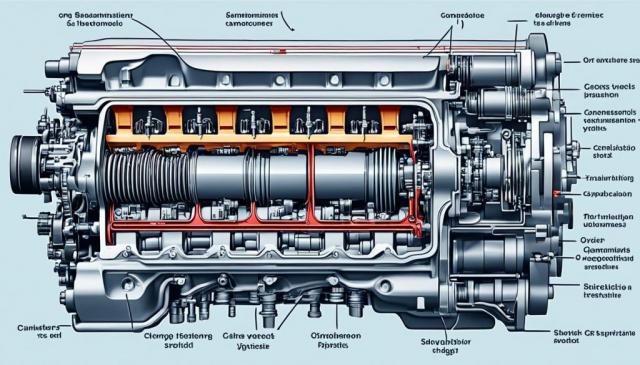Welcome to our article where we dive into the fascinating world of Car Engines and explore their weight. If you’ve ever wondered about the weight of a car Engine, you’ve come to the right place. In this section, we’ll discover the average weight of car engines and explore the factors that influence their weight.
Car engines come in various shapes and sizes, and their weight can vary significantly depending on several factors. By understanding these factors, you’ll gain insights into why some engines are heavier than others and why weight is an important consideration in the automotive industry.
So, if you’re ready to learn more about the weight of car engines and the key factors that influence it, let’s get started!
Factors Influencing the Weight of Car Engines
When it comes to car engines, weight plays a crucial role in determining the overall performance and fuel efficiency of a vehicle. Understanding the factors that influence car engine weight is essential for both car manufacturers and consumers. In this section, we will delve into the various variables that can impact the weight of car engines.
Engine Size
One of the primary factors affecting car engine weight is the size of the engine. Generally, larger engines tend to be heavier due to the increased number of components required to generate power. A larger engine may have more cylinders, a bigger displacement, and additional features, resulting in a higher overall weight.
Materials Used
The choice of materials used in the construction of car engines is another significant factor influencing their weight. Different engine components can be made of various materials such as aluminum, cast iron, or steel alloys. Lightweight materials like aluminum are commonly used in high-performance engines to reduce weight, improve efficiency, and enhance power-to-weight ratio.
Technology Advancements
Rapid advancements in engine technology have contributed to reducing the weight of car engines over the years. Innovations such as lightweight engine blocks, composite materials, and advanced manufacturing techniques have allowed manufacturers to develop lighter and more efficient engines. Additionally, the integration of turbocharging, direct injection, and variable valve timing has enabled engines to produce more power while maintaining a manageable weight.
“By optimizing engine design and utilizing advanced materials, manufacturers are continuously striving to strike a balance between performance, fuel efficiency, and weight.”
Additional Factors
Aside from engine size, materials used, and technology advancements, there are other factors that can influence the weight of car engines. These include the presence of auxiliary components such as turbochargers, superchargers, cooling systems, and emissions control devices. Each of these components adds weight to the overall engine assembly.
Now that we understand the factors that influence the weight of car engines, let’s take a closer look at the average weight of different types of car engines in the next section.
| Factors Affecting Car Engine Weight | What Determines Car Engine Weight | Variables Influencing Car Engine Weight |
|---|---|---|
| Engine Size | Materials Used | Technology Advancements |
| Auxiliary Components | Manufacturing Techniques | Design Optimization |
Average Weight of Different Types of Car Engines
When it comes to car engines, weight plays a crucial role in performance and fuel efficiency. Let’s explore the average weights of different types of car engines, including small car engines, diesel engines, and the renowned V8 engines.
Small car engines, known for their compact size and efficiency, are significantly lighter compared to their larger counterparts. On average, small car engines weigh around 200 to 300 pounds (90 to 136 kilograms). This reduced weight allows for better handling, improved acceleration, and increased fuel economy.
In contrast, diesel engines, known for their durability and torque, tend to be heavier due to their robust construction. On average, diesel engines weigh between 400 and 700 pounds (181 to 318 kilograms), depending on the size and configuration. The additional weight is attributed to the sturdier components required to withstand the higher compression ratios and forces within these engines.
Now, let’s talk about the mighty V8 engines. Popular in high-performance and luxury vehicles, V8 engines are known for their power and smooth operation. However, the powerful performance comes at a cost. V8 engines are typically heavier, with weights ranging from 500 to 700 pounds (227 to318 kilograms), or even more for larger displacements. The increased weight is due to the larger size and additional components required to accommodate eight cylinders.
The post How Much Does A Car Engine Weigh first appeared on CollisionMax.
This post first appeared on Welcome To CollisionMax, An ABRA Company, please read the originial post: here

